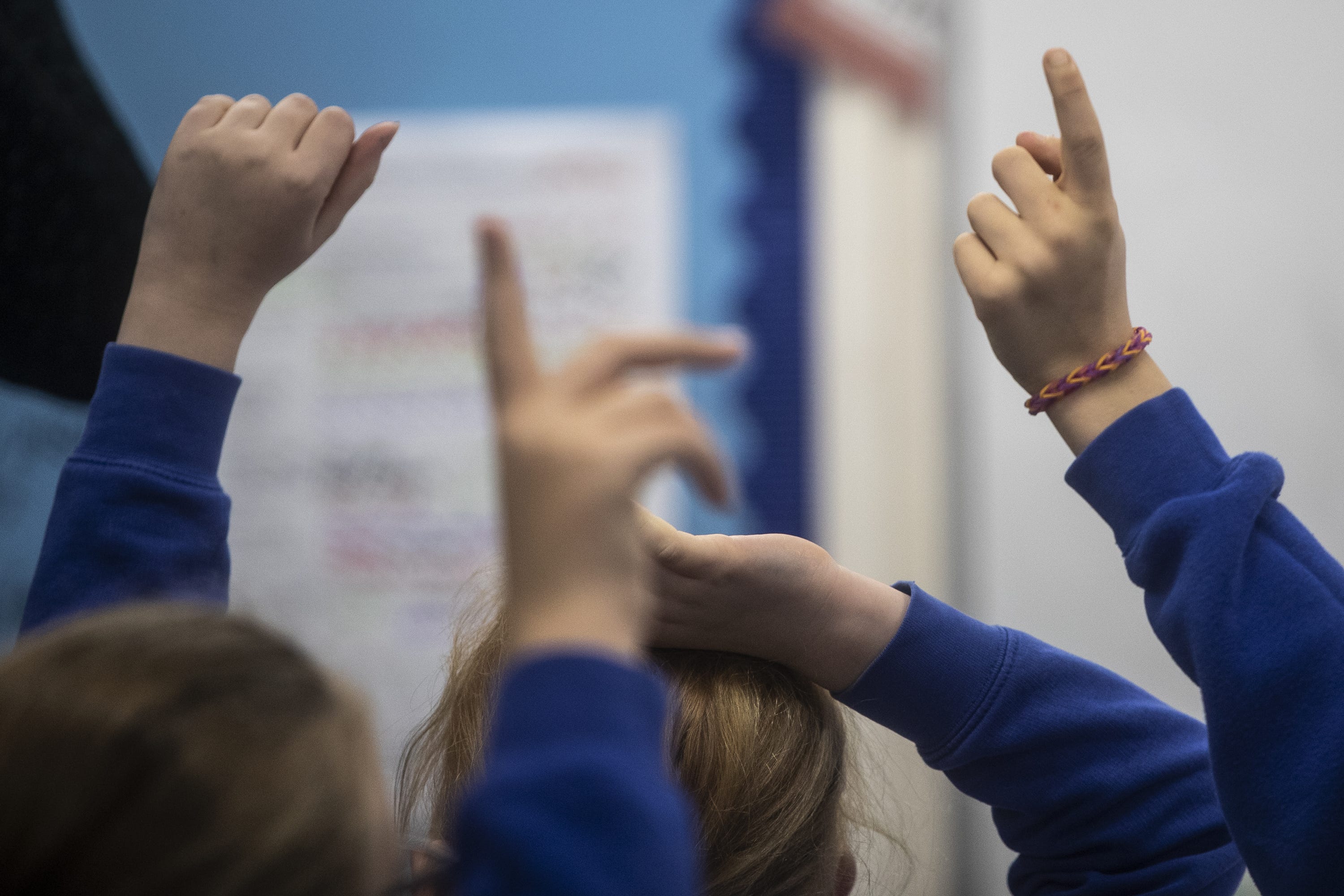Government’s investment in new special schools ‘may be too little too late’
The Department for Education has announced the areas across England where schools for children with Send will open.

Your support helps us to tell the story
From reproductive rights to climate change to Big Tech, The Independent is on the ground when the story is developing. Whether it's investigating the financials of Elon Musk's pro-Trump PAC or producing our latest documentary, 'The A Word', which shines a light on the American women fighting for reproductive rights, we know how important it is to parse out the facts from the messaging.
At such a critical moment in US history, we need reporters on the ground. Your donation allows us to keep sending journalists to speak to both sides of the story.
The Independent is trusted by Americans across the entire political spectrum. And unlike many other quality news outlets, we choose not to lock Americans out of our reporting and analysis with paywalls. We believe quality journalism should be available to everyone, paid for by those who can afford it.
Your support makes all the difference.The Government’s investment in new schools for children with special needs could be “too little too late”, a school leaders’ union has warned.
The Department for Education (DfE) has announced the locations for 16 new free schools for children with special educational needs and disabilities (Send).
It comes after the Chancellor announced in his spring Budget that £105 million would be invested over the next four years to build new special schools, creating more than 2,000 additional places for children with Send in England.
These new special schools are unlikely to be up and running for several years
On Thursday, the DfE set out the areas across England which will see new special schools open – which include Bury in Greater Manchester, Solihull in the West Midlands and Surrey.
But Pepe Di’Iasio, general secretary of the Association of School and College Leaders (ASCL), said the union was worried the investment was “too little too late”.
Government data published in March found that around two in three special schools in England were at or over capacity in the last academic year.
There were approximately 4,000 more pupils on roll in special schools than the reported capacity, according to DfE data.
Mr Di’Iasio said: “Government figures show that around two-thirds of special schools are at or over capacity, but these new special schools are unlikely to be up and running for several years.
“The pressure on places is happening right now and the lack of capacity in the system is the result of the Government’s underinvestment in schools over the past 14 years.
“This is compounded by an absolute crisis in the special educational needs system in general with the level of need far outstripping the funding and specialist support that is available.”
He added that the Chancellor’s announcement of new special schools in his Budget in March did “nothing to address the wider issue of the strain on special educational needs provision”.
I know how hard it can be for families trying to navigate the Send system, and the creation of more brilliant special schools is just one part of our plan to make sure every family and every child get the right support, in the right place at the right time
Rob Williams, senior policy adviser at school leaders’ union NAHT, said: “Today’s rehashed news does little to address the dire shortage of places in special schools.
“The new schools will take time to be built, and won’t fix the current huge challenges schools and wider social care and health services are facing when it comes to lack of capacity, funding and staffing.”
He added: “Without significant investment across the whole system, pupils with Send will continue to be let down, despite schools’ best efforts.”
A competition for academy trusts to run the new special schools will be launched in the coming days.
Education Secretary Gillian Keegan said: “Special schools can truly transform children’s lives, enabling pupils with special education needs and disabilities to thrive in environments that meet their needs.
“We’re creating tens of thousands of special school places since 2010 and today’s announcement takes us one step closer to our commitment of a record 60,000 more places for children with additional needs.
“I know how hard it can be for families trying to navigate the Send system, and the creation of more brilliant special schools is just one part of our plan to make sure every family and every child get the right support, in the right place at the right time.”